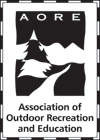Abstract
At present, the literature on judgment and decision-making in outdoor leadership is either limited to (a) empirical studies that explore a particular aspect of judgment and decision-making, (b) discussions in textbooks that are designed to inform undergraduates and novices, and (c) somewhat outdated theoretical explanations of judgment and decision-making as they relate to outdoor recreation education. Collectively, these individual facets of a large and complex body of work inadequately surmise the gestalt of the present knowledge regarding judgment and decision-making. This article addresses this gap by integrating recent findings from parent disciplines to outdoor leadership and outdoor leisure pursuit contexts, primarily by adopting a “dual-process” framework. Three major themes emerge in the outdoor leadership literature, one that focuses on heuristics and biases, one that focuses on naturalistic decision-making (NDM), and one that explores differences among novice and expert outdoor leaders. These themes are considered in relation to trans-disciplinary judgment and decision-making literature. Conclusions suggest an integrated approach to understanding decision-making in outdoor leadership that focuses on the decision-making environment, the decision-maker, the type of decisions being made, and the decision-making process itself.
Recommended Citation
Shooter, W.,
& Furman, N.
(2011).
Contextualizing Recent Judgment and Decision-Making Concepts for Outdoor Leadership Research.
Journal of Outdoor Recreation, Education, and Leadership, 3(3).
https://doi.org/10.7768/1948-5123.1092


